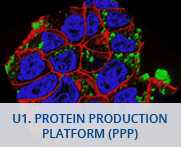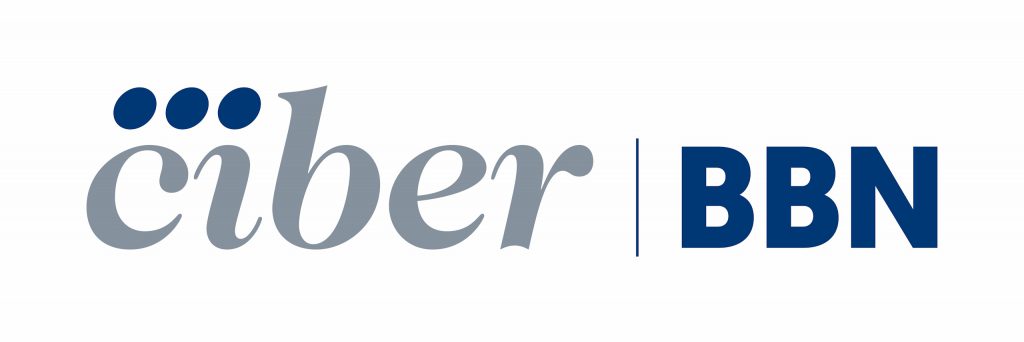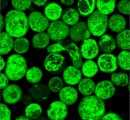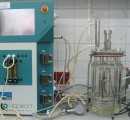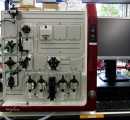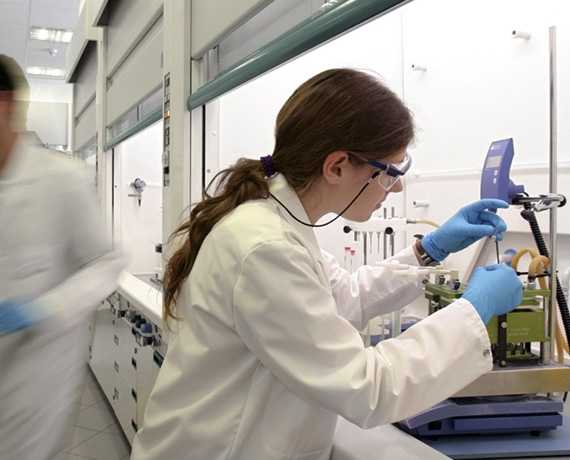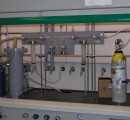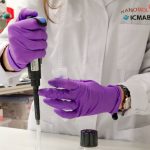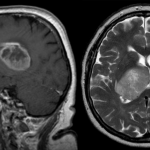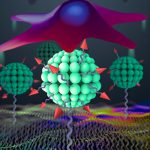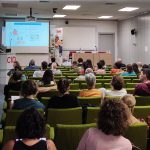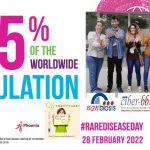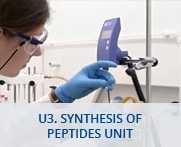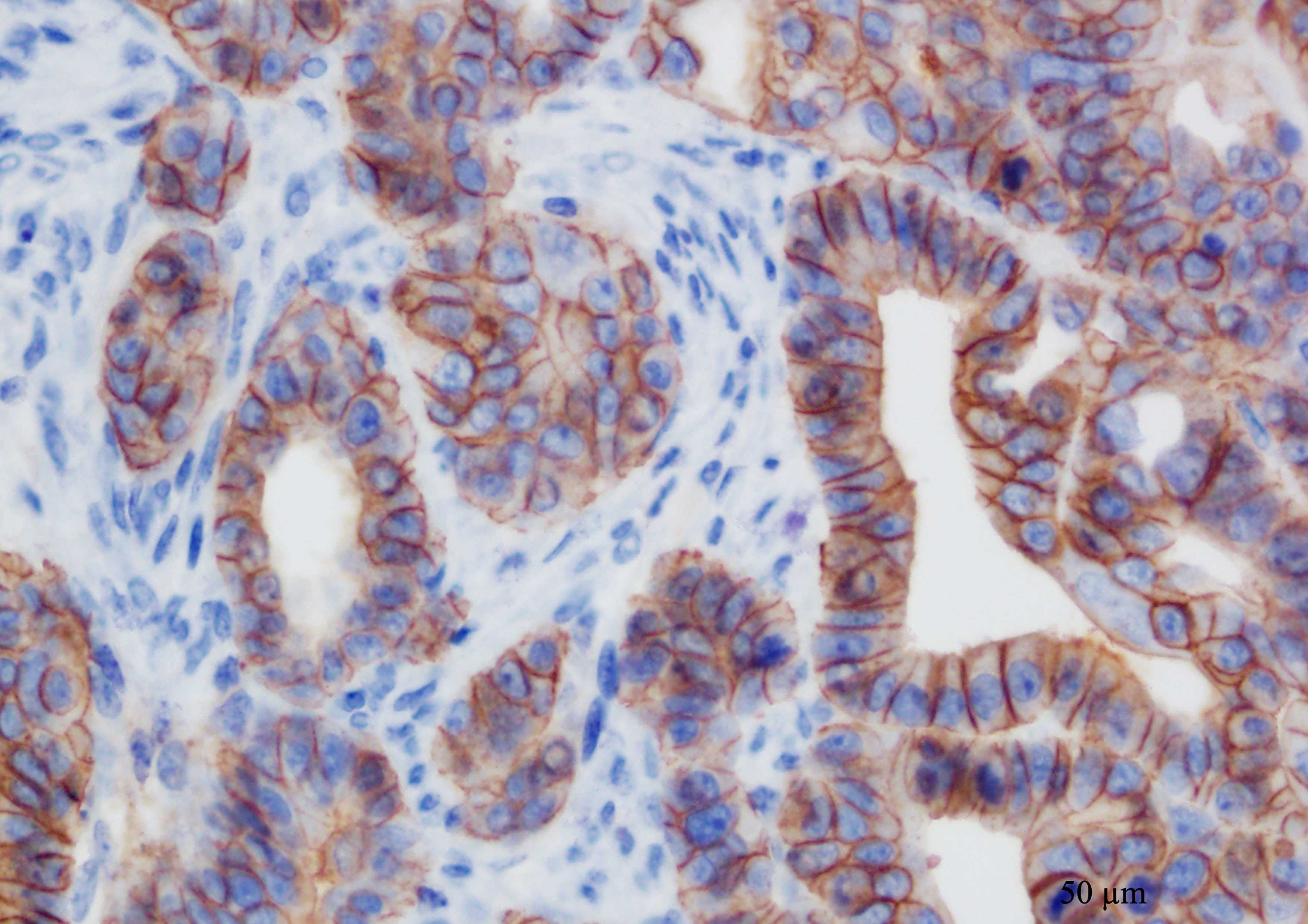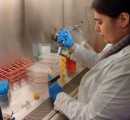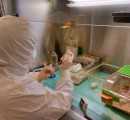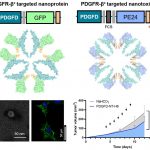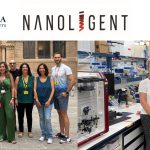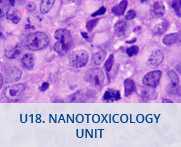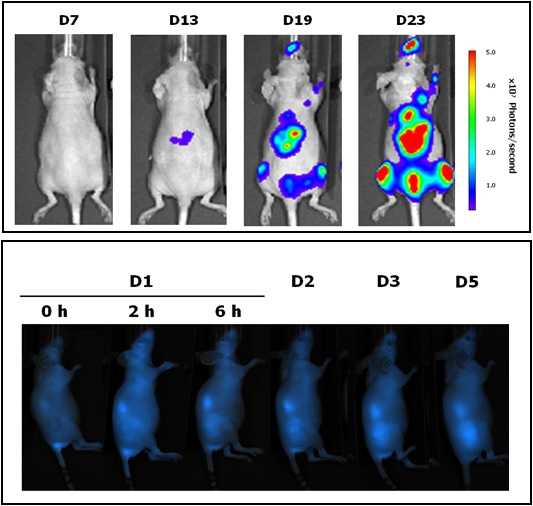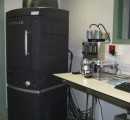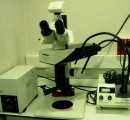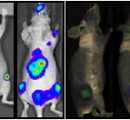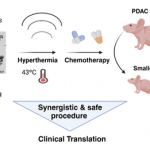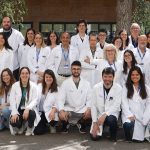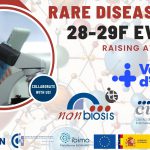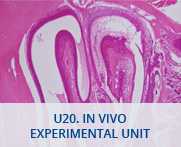U1. Protein Production Platform Unit (PPP)
The PPP Unit is at the Institute of Biotechnology and Biomedicine of the Autonomous University of Barcelona (IBB-UAB). It counts with the necessary facilities for the design, production, and purification of recombinant proteins. This facility is coordinated by the Nanobiotechnology Group, led by Prof. Antonio Villaverde. It has both highly specialized personnel and the necessary equipment to offer a “tailored” service for the design, production, and purification of recombinant proteins using both prokaryotic and eukaryotic expression systems. Its location allows this service to be linked with other complementary services available within the university (Cell Culture, Cytometry, Production of Antibodies, Microscopy, Proteomic, and Bioinformatic, X-ray crystallography, and Microarray and Sequencing Services), as well as facilitating the management of subsequent uses of the produced protein. Counts with a laboratory perfectly equipped for the bioproduction of proteins, another with all the necessary equipment for molecular cloning, plus one lab for the purification and characterization, and finally one for cryopreservation. The PPP Unit has implemented the ISO9001 certification for standard quality control system. – FOR THOSE SERVICES IDENTIFIED AS OUTSTANDING, AT LEAST 20% OF THEIR CAPACITY IS OPEN UNDER COMPETITIVE ACCESS. SEE ANNEX 1 OF ACCESS PROTOCOL FOR DETAILS ON % THE OF OPENNESS EACH SERVICE
23 May “Fabry Connections” united patients, researchers, and clinicians at ICMAB to advance Fabry disease care and nanomedicine-based therapies. Barcelona, april 2025. On Tuesday, 29 April 2025, the Institute of Materials Science of Barcelona (ICMAB, CSIC) hosted the event “Fabry Connections: Science, Patients, and Future”, bringing together around 50 participants including researchers, clinicians, patients, and patient association representatives. The event aimed to create a multidisciplinary platform for sharing knowledge and advancing the future of Fabry disease research and treatment. Attendees at the Fabry Connections event at ICMAB | ICMAB-CSIC As we announced back in february 28, this special event was held within Fabry Diseas[...] 22 Apr Researchers use a bacterial toxin domain to boost drug delivery across skin barriers, opening new paths for non-invasive protein-based therapies. Barcelona, april 2025. Researchers from NANBIOSIS Units at UAB and IR Sant Pau develop innovative strategy for transdermal protein drug delivery using recombinant proteins. In a major advance in drug delivery research, scientists from NANBIOSIS Unit 1 and Unit 18 at the Universitat Autònoma de Barcelona (UAB) and the Institut de Recerca Sant Pau, affiliated with the CIBER-BBN network, have demonstrated a novel method to increase the permeability of epithelial tissues. By harnessing the non-toxic functional domain of a bacteria[...] 15 Apr Researchers from NANBIOSIS co-author a new study showcasing an innovative approach to protein-based biomaterials for drug delivery and regenerative medicine. Barcelona, april 2025. A recent publication in the International Journal of Biological Macromolecules highlights the cutting-edge work of scientists from Unit 1 (Protein Production Platform, PPP) and Unit 18 (Nanotoxicology Unit) of NANBIOSIS, under the leadership of Prof. Antonio Villaverde and Prof. Ramón Mangues, respectively. The study, entitled “Surpassing protein specificity in biomimetics of bacterial amyloids” (DOI: 10.1016/j.ijbiomac.2025.139635), explores the development of artificial protein granules with promising applications in biomedicine. A Novel Approach to Biomimetic Materials The research introduces a[...] 31 Mar Breakthrough nanotherapy targets MSS colorectal cancer, inducing pyroptosis and immune activation. NANBIOSIS Units 1 and Unit 18 played a key role. Barcelona, march 2024. For this World Colorectal Cancer Day, researchers from Dr. Mangues’ group (CB06/01/1031), in which NANBIOSIS Unit 18 is integrated, have published just last month a groundbreaking study on a novel targeted nanotherapy for colorectal cancer. Conducted in collaboration with three CIBER research groups across two thematic areas (BBN and ER), this research highlights the potential of CXCR4-targeted nanotoxic therapy to combat microsatellite stable (MSS) colorectal cancer, a subtype known for its resistance to immune checkpoint inhibitors[...] 10 Dec NANBIOSIS’s Protein Production Platform showcased innovations in protein engineering at PEGS Europe 2024, featuring talks, posters, and session moderation. Barcelona, november 2024. Last month, the NBT group and Unit 1 of NANBIOSIS (Protein Production Platform, PPP), from CIBER-BBN and IBB-UAB, was invited once again to participate in the prestigious PEGS Europe conference. PEGS Europe, a prestigous conference This year, the 16th PEGS Europe conference was held in Barcelona from November 5th to 7th. PEGS, or the Protein & Antibody Engineering Summit, is organized by the Cambridge Healthtech Institute (CHI) and is renowned for its focus on protein engineering and its[...] 18 Nov The PPP advances antimicrobial peptide research, forging partnerships to combat antibiotic resistance and prevent medical device-related infections. Barcelona, october 2024. During Antibiotic Awareness Week, we spotlight the Protein Production Platform (PPP) at NANBIOSIS Unit 1 for its pivotal role in combating antimicrobial resistance. At the recent UAB Innovation Fair, the PPP showcased its cutting-edge technologies and established collaborations with experts in bacterial biofilms and nanomaterials. Together, they aim to develop innovative antimicrobial peptides as alternatives to traditional antibiotics, targeting nosocomial infections linked to medical devices. These efforts underscore the critical importance of advancing research and partnerships to address one of[...] 10 Oct The Nanobiotechnology Group and NANBIOSIS PPP have created a poster-guide for recombinant protein cloning, production, and purification in prokaryotic systems. Barcelona, october 2024. The Nanobiotechnology Group, led by Prof. Villaverde, in collaboration with the NANBIOSIS Unit 1, Protein Production Platform (PPP), directed by Dr. Ferrer-Miralles, has created an in-depth guide in the form of a poster that compiles key strategies for cloning, production, purification, and characterization of recombinant proteins expressed in prokaryotic systems. Drawing from their vast experience in the field, they have meticulously outlined techniques and best practices to address common challenges and optimize every stage of the process.[...] 09 Oct Dr. Neus Ferrer explores nanotechnology in protein research to combat antimicrobial resistance, focusing on innovative solutions using lysins and other recombinant proteins. Barcelona, October 2024. In celebration of Nanotechnology Day, we take a closer look at the cutting-edge work of Dr. Neus Ferrer, director of the Unit 1, Protein Production Platform (PPP), at NANBIOSIS. Specializing in recombinant protein synthesis, Dr. Ferrer’s research tackles critical challenges in healthcare, particularly antimicrobial resistance, often referred to as the “new pandemic”. Through advanced nanotechnology approaches, her team in develops innovative solutions that could revolutionize treatment options in biomedicine and beyond. The interview begins… Interviewer:[...]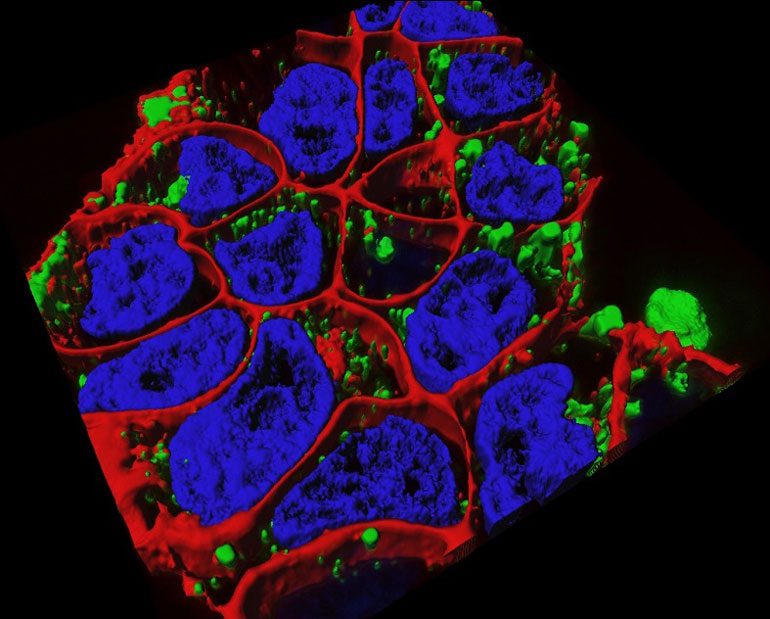
U1. Protein Production Platform (PPP)



Description
 IQNet ISO 9001:2015 Certification PPP
IQNet ISO 9001:2015 Certification PPPServices
Equipments
Active projects
Title
Fundin: Organism
Call: Funding source
Role
GA: 720942

SMART FUNCTIONAL GLA-NANOFORMULATION FOR FABRY DISEASE – Smart-4-Fabry
Unión Europea (Comisión Europea)
H2020-NMBP-2016-2017
Coordinator
SAF2017-90810-REDI

Strategic Promotion and coordinated management of Nanbiosis: Pronanbiosis II
Agencia Estatal de Investigación (AEI)
Acciones de dinamización «REDES DE EXCELENCIA»
-ICTS 2017Coordinator
Other projects
Ref
Title
Funding Organism
Unit Role
PI15/00272
Design of intelligent nanoconjugates for the treatment of metastatic colorectal cancer.
Instituto de Salud Carlos III
Participant
BIO2013-41019-P
ENGINEERING OF PROTEIN NANOPARTICLES FOR THE DIRECT DELIVERY OF THERAPEUTIC PROTEINS AND NUCLEIC ACIDS
MINECO
Participant
2014SGR-132
Basic and Applied Microbiology
AGAUR
Participant
BIO2016-76063-R
DEVELOPMENT OF NONOSTRUCTURED PROTEIN TOXINS AND POISONS FOR THE TREATMENT OF CXCR4 + CANCERES
MINECO
Working package
RTC-2014-2207-1
TERARMET: Development of therapies for the treatment of rare congenital metabolic diseases
MINECO
Participant
Marato 416/C/2030TV32013-132031
Genotoxic nanoparticles targeting colorectal cancer stem cells
Marato TV3
Participant
Publications
2016
News U1
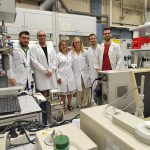
Event recap: “Fabry Connections” brings together science and patients at ICMAB
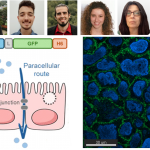
From toxins to allies: A new tool to cross cellular barriers

NANBIOSIS contributes to innovative protein granules for new biomedical applications

Breakthrough Nanotherapy for Colorectal Cancer: Innovative Research Involving NANBIOSIS

NANBIOSIS Unit invited to PEGS, the Protein & Antibody Engineering Summit

The Protein Production Platform (PPP) at the UAB Innovation Fair
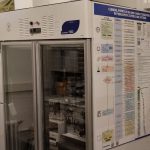
Knowdlege growth: A chart-guide for cloning, production, purification, and characterization of recombinant proteins from prokaryotic systems

Harnessing Nanotechnology in protein research: Insights from Dr. Neus Ferrer on new ways of fighting antimicrobial resistance
